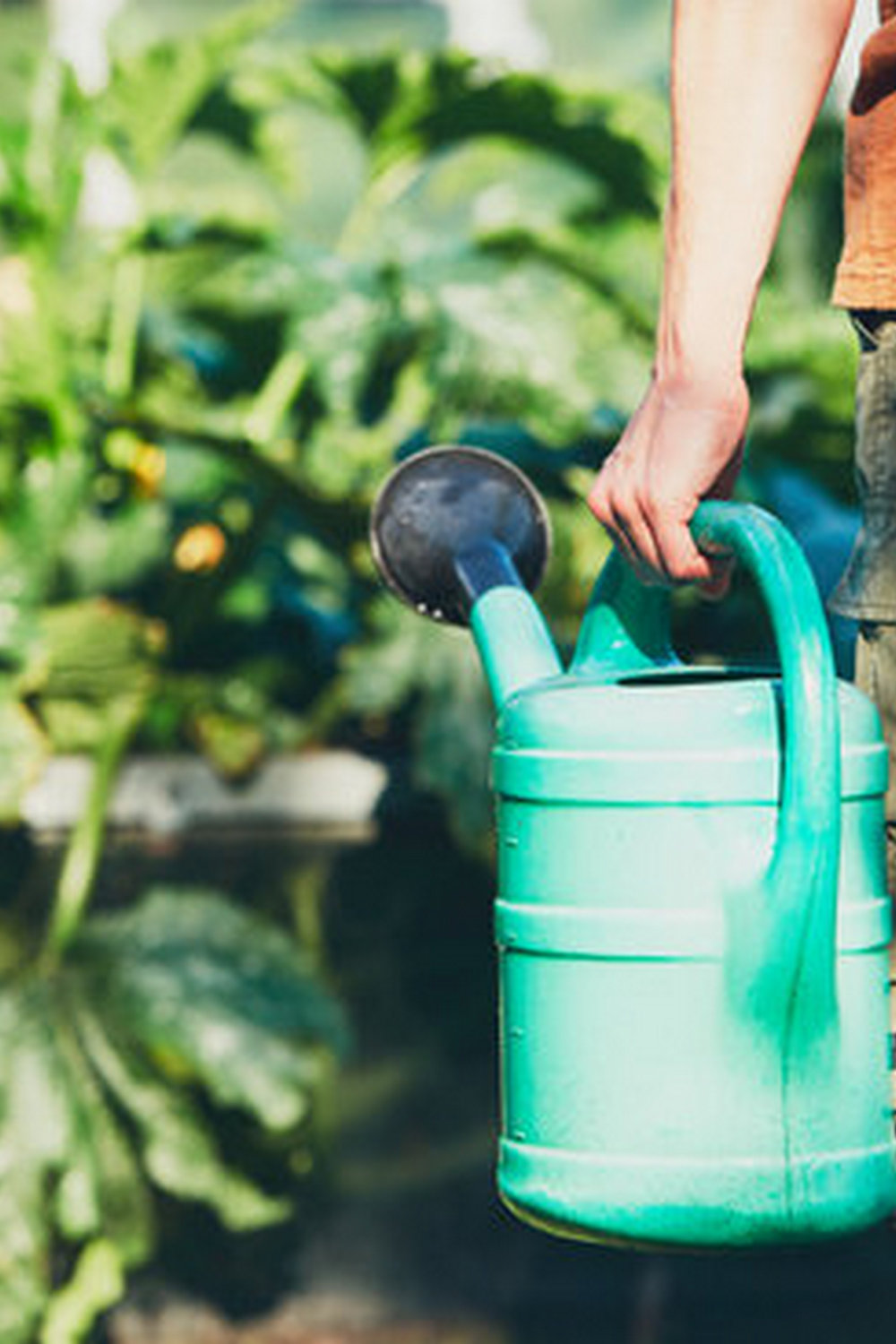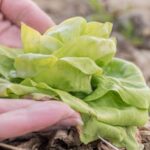Home vegetable gardening has become a popular and rewarding activity for many residents in North Carolina, seeking fresh, organic produce right from their backyard. The NC Extension services offer valuable resources and support to help both novice and experienced gardeners successfully cultivate their own vegetables at home.
The benefits of home vegetable gardening are abundant, ranging from having access to fresh, nutritious produce to promoting sustainability and reducing grocery bills. Not only does it provide a source of physical activity and mental well-being, but it also fosters a deeper connection to nature and the food we consume.
In this article, we will explore essential tips for choosing the right location, preparing soil effectively, selecting suitable vegetables for the local climate, planning garden layout, maintenance practices throughout the season, pest/disease management strategies specific to NC gardens, maximizing harvest yield, and utilizing the resources provided by NC Extension services. Whether you are new to gardening or looking to enhance your skills, this guide will help you create a thriving vegetable garden in the comfort of your own home.
Choosing the Right Location for Your Vegetable Garden in NC
Home vegetable gardening in North Carolina can be a rewarding and enjoyable experience for many individuals. One of the crucial factors to consider when starting your vegetable garden is selecting the right location. The ideal location for a vegetable garden in NC should receive at least 6-8 hours of sunlight per day, have access to water, good air circulation, and be away from trees or large structures that may shade the plants.
Additionally, it is essential to consider the proximity to your home when choosing a location for your vegetable garden. Having your garden close to your house can make it easier to tend to and monitor your plants regularly. This convenience factor can also increase the likelihood of harvesting fresh produce quickly before they spoil or are affected by pests and diseases.
Moreover, considering the soil quality and drainage in the chosen location is crucial for successful home vegetable gardening in NC. Conducting a soil test through NC Extension services can provide valuable insights into the composition of your soil and help determine if any amendments are necessary for optimal plant growth. By carefully selecting the right location for your vegetable garden, you are setting yourself up for a productive and bountiful harvest throughout the growing season.
| Location Considerations | Importance |
|---|---|
| Sunlight Exposure | At least 6-8 hours per day for optimal growth |
| Proximity to Home | Convenience in monitoring and tending to plants regularly |
| Soil Quality | Conduct soil test through NC Extension services for successful gardening |
Soil Preparation Tips for Successful Home Vegetable Gardening in NC
When it comes to home vegetable gardening in North Carolina, one of the most crucial factors for success is soil preparation. Proper soil preparation sets the foundation for healthy plant growth and high yields. With the help of NC Extension services, you can ensure that your garden’s soil is optimized for your vegetable crops.
Testing and Amending the Soil
Before planting your vegetables, it is essential to test your soil’s pH levels and nutrient content. NC Extension offers soil testing services that provide detailed recommendations on how to amend your soil based on the results. Adding organic matter such as compost, aged manure, or cover crops can improve soil structure, fertility, and water retention. Following these recommendations will create a nutrient-rich environment for your plants to thrive.
Tillage and Bed Preparation
Proper tillage of the soil is necessary to loosen compacted areas and create a suitable planting bed for your vegetables. NC Extension recommends using techniques such as double-digging or raised beds to improve drainage and root development.
When preparing your planting beds, make sure to remove any weeds or debris that could compete with your vegetables for nutrients and water. By following these soil preparation tips, you can set up your home vegetable garden for success throughout the growing season.
Selecting the Best Vegetables for Your Garden Based on NC’s Climate and Soil
Determining Suitable Vegetables
When it comes to choosing the best vegetables for your home garden in North Carolina, it is essential to consider the region’s climate and soil conditions. Some vegetables thrive better in specific environments, so selecting varieties that are well-suited to NC’s climate will increase your chances of a successful harvest. The North Carolina Extension service can provide valuable information on which vegetables are most suitable for your particular area.
Warm-Season vs. Cool-Season Vegetables
In North Carolina, gardeners have the luxury of planting both warm-season and cool-season vegetables due to the state’s diverse climate. Warm-season vegetables like tomatoes, peppers, squash, and cucumbers thrive during the hot summer months, while cool-season vegetables like lettuce, broccoli, carrots, and peas prefer cooler temperatures found in spring or fall. By planning your garden with a mix of both types of vegetables, you can enjoy fresh produce throughout the growing season.
Native Varieties and Adapted Cultivars
Incorporating native plant varieties and adapted cultivars into your vegetable garden can also enhance its success in North Carolina. These plants are already acclimated to the local climate and soil conditions, making them more resilient to potential challenges such as pests or diseases.
Additionally, utilizing these varieties can support biodiversity and conservation efforts in your region. Be sure to consult with NC Extension resources for advice on which native varieties and cultivars are best suited for your home vegetable gardening endeavors.
Planning Your Garden Layout and Spacing for Optimal Growth
When it comes to planning your home vegetable garden in North Carolina, careful consideration of the layout and spacing is key to ensuring optimal growth and productivity. In this region, factors such as sunlight exposure, air circulation, and proximity to water sources play a vital role in the success of your garden. Before you start planting, take the time to map out your garden layout to make the most of the available space.
One important aspect to consider when planning your garden layout is crop rotation. Rotating where you plant different types of vegetables each year helps prevent soil-borne diseases and nutrient depletion. Additionally, certain plants complement each other when grown together while others may inhibit growth. This practice, known as companion planting, can help maximize space efficiency and ward off pests naturally.
To ensure proper spacing between plants in your vegetable garden, refer to seed packets or plant tags for specific guidelines on how far apart each plant should be placed. Overcrowding can lead to competition for nutrients and sunlight, resulting in stunted growth and reduced yields. By adhering to recommended spacing requirements, you can promote healthier plants and increase overall productivity in your NC home vegetable garden.
| Benefit | Data |
|---|---|
| Improved Growth | Proper spacing allows for better absorption of nutrients and sunlight |
| Pest Prevention | Adequate spacing reduces overcrowding that attracts pests |
| Higher Yields | Optimal spacing results in healthier plants that produce more fruits or vegetables |
Maintaining and Caring for Your Vegetable Garden Throughout the Season
- Watering: Proper watering is crucial for the health of your vegetable plants. In North Carolina, where summers can be hot and dry, it’s important to water consistently. Be sure to water at the base of the plants in the morning or evening to prevent evaporation. Consider using a drip irrigation system or soaker hoses to deliver water directly to the roots.
- Weeding: Weeds can compete with your vegetable plants for nutrients and water, so regular weeding is necessary. In addition to stealing resources from your plants, weeds can also harbor pests and diseases that can affect your garden. Take time each week to pull out any weeds that have sprouted, being careful not to disturb the roots of your vegetables.
- Fertilizing: To promote healthy growth and high yields, it’s important to fertilize your vegetable garden throughout the growing season. Consider conducting a soil test through NC Extension services to determine what nutrients your soil may be lacking. Based on the results, choose an appropriate fertilizer and follow the recommended application rates. Organic options like compost or aged manure can also be used to enrich the soil.
- Pruning and thinning: Regularly inspect your vegetable plants for any signs of overcrowding or disease. Prune back any dead or diseased foliage to promote air circulation and prevent the spread of diseases. Additionally, thin out overcrowded plants such as carrots or lettuce to allow room for proper growth.
By following these maintenance tips for your home vegetable garden in North Carolina, you can set yourself up for a successful growing season with a healthy and abundant harvest.
Pest and Disease Management Strategies for NC Home Vegetable Gardens
Home vegetable gardening in North Carolina can be incredibly rewarding, providing you with fresh produce right from your backyard. However, one of the challenges that gardeners often face is dealing with pests and diseases that can wreak havoc on their crops. To ensure a successful harvest, it is essential to implement effective pest and disease management strategies.
Here are some tips to help you protect your home vegetable garden in North Carolina:
- Identify common pests in NC: Familiarize yourself with the most prevalent insect pests in NC, such as aphids, cabbage loopers, and squash bugs. Knowing what to look for will help you spot potential issues early.
- Implement integrated pest management (IPM) practices: IPM involves using a combination of cultural, biological, and chemical control methods to manage pests effectively while minimizing harm to beneficial insects and the environment.
When it comes to disease management, prevention is key. Here are some strategies to keep your plants healthy:
- Practice crop rotation: Rotating your crops each year can help reduce the build-up of soil-borne diseases. Planting vegetables from different families in each bed can also prevent the spread of diseases.
- Avoid overhead watering: Wet foliage can encourage the development of fungal diseases. Consider using drip irrigation or watering at the base of plants to keep leaves dry.
By staying vigilant and implementing these pest and disease management strategies, you can protect your home vegetable garden in North Carolina and ensure a bountiful harvest for you and your family to enjoy. Don’t hesitate to reach out to resources available through NC Extension services for additional guidance and support on managing pests and diseases specific to your region.
Harvesting and Enjoying the Fruits of Your Labor
When it comes to home vegetable gardening in North Carolina, harvesting the fruits of your labor is a rewarding experience. To maximize your vegetable harvest, there are key tips and strategies you can implement throughout the growing season. One important tip is to harvest vegetables at the peak of ripeness.
This ensures that you’re getting the best flavor and nutritional value from your crops. Keep a close eye on your garden and harvest vegetables as soon as they are ready.
Another crucial aspect of maximizing your vegetable harvest is proper storage and preservation techniques. Once you’ve harvested your vegetables, it’s important to store them properly to maintain their freshness and extend their shelf life. Some vegetables, like tomatoes, should not be stored in the refrigerator as it can affect their flavor and texture. Instead, consider storing them at room temperature away from direct sunlight.
In addition to harvesting and storing your vegetables properly, it’s also essential to make use of any excess produce that you may have. Consider preserving vegetables through methods such as canning, freezing, or pickling to enjoy them year-round.
Additionally, sharing your bounty with friends, family, or local food banks can bring joy to others while reducing waste. By following these tips for maximizing your vegetable harvest, you can make the most out of your home vegetable gardening efforts in North Carolina.
Resources and Support Available Through NC Extension Services for Home Vegetable Gardeners
Home vegetable gardening in North Carolina can be a rewarding and fulfilling experience, providing you with fresh, homegrown produce and the satisfaction of cultivating your own food. However, navigating the ins and outs of successful home gardening can be challenging without the proper knowledge and resources. Thankfully, the NC Extension services offer a wealth of support and information for home vegetable gardeners looking to enhance their skills and maximize their harvest.
One key benefit of utilizing NC Extension services for your home vegetable garden is access to valuable resources such as expert advice, educational materials, workshops, and online publications. These resources can help you stay informed on the best practices for soil amendments, pest management strategies, plant selection, and more. By tapping into these resources, you can make informed decisions that will set you up for success in your gardening endeavors.
In addition to resources, NC Extension services also offer support through master gardener programs, local gardening events, and community outreach initiatives. Engaging with fellow gardeners through these programs can provide you with a network of like-minded individuals who share your passion for home vegetable gardening.
You can exchange tips, troubleshoot challenges together, and celebrate successes within a supportive community that understands the unique joys and struggles of tending to a vegetable garden in North Carolina. Whether you are a novice gardener or have years of experience under your belt, taking advantage of the resources and support available through NC Extension services can help take your home vegetable garden to new heights.
Frequently Asked Questions
Is It Too Late to Plant a Garden in NC?
It is not too late to plant a garden in NC, depending on what you want to grow. Some vegetables like tomatoes, peppers, and beans can still be planted in late spring or early summer for a fall harvest.
Can I Have a Vegetable Garden in My House?
Yes, you can have a vegetable garden in your house. Indoor vegetable gardening is a growing trend, especially for people who may not have outdoor space or live in colder climates. With proper lighting and care, many vegetables can thrive indoors.
Is It Too Late to Start a Vegetable Garden?
It is not too late to start a vegetable garden, as long as you choose the right plants and plan accordingly. Quick-growing vegetables like lettuce, radishes, and spinach can be planted later in the season for a successful harvest before frost hits.

If you’re looking to get into vegetable gardening, or are just looking for some tips on how to make your current garden better, then you’ve come to the right place! My name is Ethel and I have been gardening for years. In this blog, I’m going to share with you some of my best tips on how to create a successful vegetable garden.





